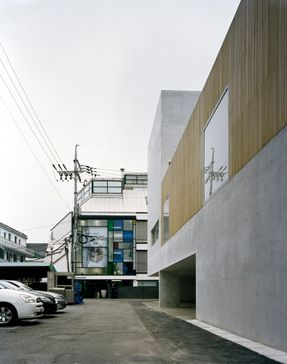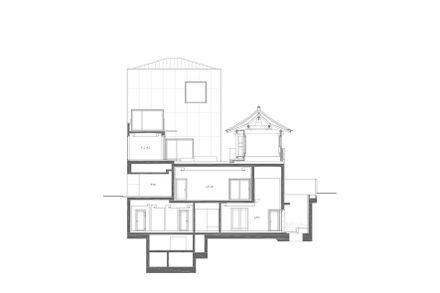Arumjigi Building
COLLABORATORS
Kim Bongryul, Jung Yongsun
ELECTRICAL ENGINEER
Hangil Engineering
ARCHITECT IN CHARGE
Kim Jongkyu, Choi Jonghoon
DESIGN TEAM
Jang Byul, Choi Sunwoo, Jung Youngju, Jung Eunju
STRUCTURE ENGINEER
Hamony Structural Engineering
CONSTRUCTION SUPERVISION
Jang Byul
PHOTOGRAPHS
Kyungsub Shin, Jonathan Lovekin
AREA
1190 m²
YEAR
2013
LOCATION
South Korea
CATEGORY
Cultural Centre
Text description provided by architect.
Arumjigi means ‘People who preserve and take care of our beautiful culture’.
And the building recently completed near Gyeongbokgung(Korean royal palace) is new house for Arumjigi Culture Keepers Foundation.
People expect it to be a cultural place where people can experience Korean beauty and sentiment throughout cultural programs and also spaces itself.
From the beginning it is required to have a Korean traditional house (Han-ok) built by master craft man within new building.
It is a symbol of Arumjigi and also critical issue of relationship between traditional and modern architecture to be worked out to client as well as architect.
The strategy of space organization is to understand relationship between various programs and space in a small land and to establish relationship between modern and traditional architecture.
Firstly Han-ok is placed facing southward naturally. Considering the sociability of Han-ok and the land, it should be on ground floor but it will leave just little rooms for other programs.
Therefore Han-ok is sat on a new topography (first floor) which gives enough rooms for cultural programs below.
On first floor rooms for social program take place around Ma-dang (traditional courtyard) to create natural relationship with Han-ok in between.
Ma-dang will be where modern and traditional architecture is encountered nicely. Finally office rooms are placed on top leaving southward lower to keep spatial quality of Ma-dang with full daylight.
Overall programs are organized properly for its purpose and traditional house and modern building creates new relationship without losing essential quality of each.
Material use is also considered to deliver relationship between spaces and also aim to use materials with feeling of original properties like natural timber, stone, concrete and glass.
Lower part of building as new topography is exposed concrete and middle part is enclosed by natural timber to be matched with Han-ok.
Top part of building at front is enclosed by translucent glass to be blurred into sky.
Basement is stone wall so it looks more natural at back with Han-ok on top. Material combination of spaces with each purpose makes building sustainable and aesthetic
The process of space organization results nice connection between rooms through various outdoor spaces.
Central courtyard (Ma-dang) is connected from road directly, small garden, lower yard with heritage stone excavated from the site, wooden deck looking surrounding etc.






































